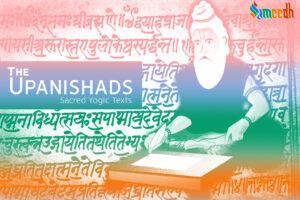The number of Upanishads can vary in different lists, but traditionally, there are said to be 108 Upanishads. However, the exact number and the inclusion of specific Upanishads in this count can vary.

The Upanishads are ancient Indian philosophical texts that explore the nature of reality, the self (Atman), and the ultimate reality (Brahman).
Here are a few well-known Upanishads:
- Isha Upanishad :It praises the study of Vidya (Real Knowledge, eternal truths) and Avidya (not Real Knowledge, empirical truths).
- Kena Upanishad : It encourages devotion and surrender to the divine.
- Katha Upanishad : It teaches that the true self, or Atman, is not the physical body or the mind, but rather an eternal, unchanging essence that is at the core of every being.
- Prashna Upanishad : It gave us the famous Swastik mantra.
- Mundaka Upanishad: It gave independent India’s motto Satyamaev Jayate.
- Mandukya Upanishad : It explains true meaning of AUM.
- Taittiriya Upanishad: It gave some of the most popular Sanskrit Shloka.
- Aitareya Upanishad: It explains the journey of a soul from life to death.
- Chandogya Upanishad: It shows ways to understand unison with the universe.
- Brihadaranyaka Upanishad : It explains the ultimate reality of our existence
The Upanishads are part of Vedanta, the philosophical culmination of the Vedic literature. They are often found at the end of the Vedic texts, following the Samhitas, Brahmanas, and Aranyakas. Each Upanishad is associated with one or more Vedic texts and schools of thought.
The number 108 has symbolic significance in Hinduism and other Indian traditions. It is considered a sacred and auspicious number, representing various aspects of the universe. The 108 Upanishads are sometimes categorized into different groups based on their content and association with particular Vedic schools.
It’s worth noting that not all the Upanishads are equally well-known or widely studied, and the philosophical emphasis can vary among them. Some Upanishads, like the Isa, Kena, and Mundaka, are frequently cited and studied for their profound philosophical insights.